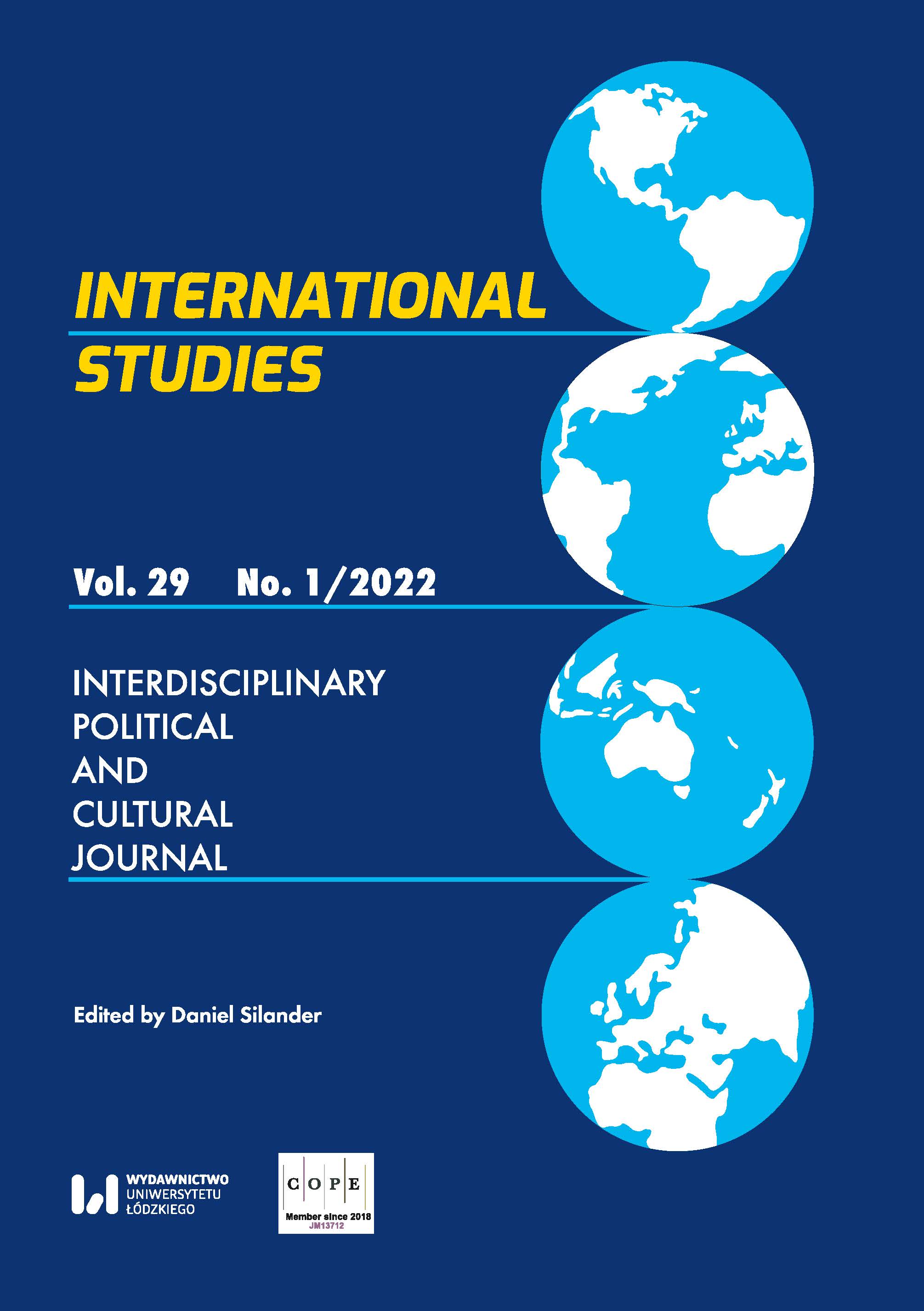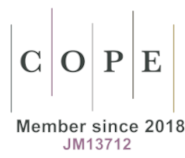Geopolityczne uwarunkowania przebiegu szlaków migracyjnych i ich wpływ na przestępczość zorganizowaną w Republice Macedonii Północnej
DOI:
https://doi.org/10.18778/1641-4233.29.04Słowa kluczowe:
geopolityka, nielegalna migracja, szlaki migracyjne, przestępczość zorganizowana, przemyt migrantówAbstrakt
Ze względu na szczególną sytuację geopolityczną i geostrategiczną, położona w samym sercu Półwyspu Bałkańskiego Macedonia Północna jest celem nielegalnej migracji i znajduje się na skrzyżowaniu szlaków migracyjnych prowadzących z Azji i Afryki do Europy Środkowej i Zachodniej. Poniższy artykuł stara się zatem odpowiedzieć na dwa powiązane ze sobą pytania. Pierwsze pytanie dotyczy geopolitycznych uwarunkowań przebiegu szlaków migracyjnych i ich wpływu na nasilenie przemytu migrantów, natomiast drugie ogniskuje się wokół przemytu migrantów dokonywanego przez zorganizowane grupy przestępcze. W ujęciu czasowym, badanie objęło okres pandemii COVID-19. Podstawą metodologiczną niniejszego artykułu jest analiza dokumentów politycznych pochodzących z otwartych źródeł. Ponadto, autorzy przeprowadzili wywiady z ponad stoma macedońskimi funkcjonariuszami policji, którzy pracują bezpośrednio na granicy i są zaangażowani w zwalczanie przemytu migrantów, a także pogłębiony wywiad z naczelnikiem Krajowej Jednostki ds. Zwalczania Przemytu Migrantów i Handlu Ludźmi w Macedonii Północnej.
Pobrania
Bibliografia
European Council. The EU–Turkey statement, March 18 2016. Web. 10.12.2020. https://www.consilium.europa.eu/en/press/press-releases/2016/03/18/eu-turkey-statement/
Zobacz w Google Scholar
The European Union (EU) Serious and Organised Crime Threat Assessment (SOCTA), European Policy Office. 2017. Web. 12.12.2020. https://www.europol.europa.eu/activities-services/main-reports/european-union-serious-and-organised-crime-threat-assessment-2017
Zobacz w Google Scholar
Hintjens, H., Bilgic, A. “The EU’s Proxy War on Refugees”. State Crime Journal, 8.1 (2019): 80–103. https://doi.org/10.13169/statecrime.8.1.0080
Zobacz w Google Scholar
Hyndman, J. “The Geopolitics of Migration and Mobility”. Geopolitics, 17.2 (2012): 243–255. https://doi.org/10.1080/14650045.2011.569321
Zobacz w Google Scholar
Mileski, T. “Response and Responsibilities of the Republic of Macedonia in the Migrant and Refugees Crises”. New England Journal of Public Policy, 30.2, Article 12 (2018).
Zobacz w Google Scholar
Ministry of Interior of the Republic of Macedonia [MoI] Информација за состојбите со илегалната миграција (Information about the situation with illegal migration). Skopje: Ministry of Interior, 2016.
Zobacz w Google Scholar
Pachemska, D. “The geopolitical context of migration routes and the impact of organised crime in the Western Balkans, with particular reference to the Republic of North Macedonia”. 2020. Web. 10.12.2020. https://repository.ukim.mk/handle/20.500.12188/8677
Zobacz w Google Scholar
Parkes, R. “European Union and the Geopolitics of Migration”. UI Paper no. 1/2015. February 2015.
Zobacz w Google Scholar
Sanchez, G., Achilli, L. Stranded: The impacts of COVID-19 on irregular migration and migrant smuggling. European University Institute, 2020.
Zobacz w Google Scholar
Triandafyllidou, A., Maroukis, T. Migrant Smuggling. Irregular Migration from Asia and Africa to Europe. London: Palgrave Macmillan, 2012. https://doi.org/10.1057/9780230369917
Zobacz w Google Scholar
Ullah, A.K.M. Ahsan, Nawaz, F., Chattoraj, D. “Locked up under lockdown: The COVID-19 pandemic and the migrant population”. Social Sciences & Humanities Open, 3.1 (2021): 100–126. https://doi.org/10.1016/j.ssaho.2021.100126
Zobacz w Google Scholar
Umek, D., Minca, C., Šantić, D. “The Refugee Camp as Geopolitics: The Case of Preševo (Serbia)”. In: Mediterranean Mobilities. Europe’s Changing Relationships. Ed. M. Paradiso. Springer, Cham, 2019. https://doi.org/10.1007/978-3-319-89632-8_4
Zobacz w Google Scholar
US Department of State. 2018. Trafficking in Persons Report. Web. 12.12.2020. https://www.state.gov/reports/2018-trafficking-in-persons-report/
Zobacz w Google Scholar
Väyrynen, R. “Illegal immigration, human trafficking, and organised crime”. WIDER Discussion Paper, 72 (2003). https://www.econstor.eu/handle/10419/52839
Zobacz w Google Scholar
William, A., Anderson, B., Van Hear, N., Sumption, M., Düvell, F., Hough, J., Rose, L., Humphris, R., Walker, S. “Who Counts in Crises? The New Geopolitics of International Migration and Refugee Governance”. Geopolitics, 23.1 (2018): 217–243. https://doi.org/10.1080/14650045.2017.1327740
Zobacz w Google Scholar
Камбовски, В., Мирчев, Д., Мемеди, A., ed. Геополитичката и геостратегиската положба на Република Македонија во услови на мигрантската и бегалска криза. Скопје: Македонска академија на науките и уметностите, 2017 [Kambovski, V., Mirčev, D., Memedi, A., ed. Geopolitičkata i geostrategiskata položba na Republika Makedonija vo uslovi na migrantskata i begalska kriza. Skopje: Makedonska akademija na naukite i umetnostite, 2017].
Zobacz w Google Scholar
Кривичен Законик [Criminal Code] 1996. Web. 12.12.2020. https://jorm.gov.mk/wp-content/uploads/2016/03/%D0%B7%D0%B0%D0%BA%D0%BE%D0%BD%D0%B8%D0%BA-%D0%BF%D1%80%D0%B5%D1%87%D0%B8%D1%81%D1%82%D0%B5%D0%BD-%D1%82%D0%B5%D0%BA%D1%81%D1%82.pdf
Zobacz w Google Scholar
Pobrania
Opublikowane
Wersje
- 2024-02-20 - (2)
- 2024-01-16 - (1)
Jak cytować
Numer
Dział
Licencja

Utwór dostępny jest na licencji Creative Commons Uznanie autorstwa – Użycie niekomercyjne – Bez utworów zależnych 4.0 Międzynarodowe.

















